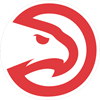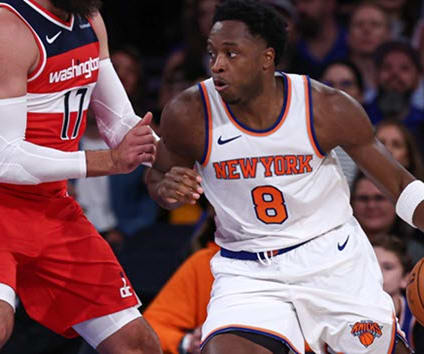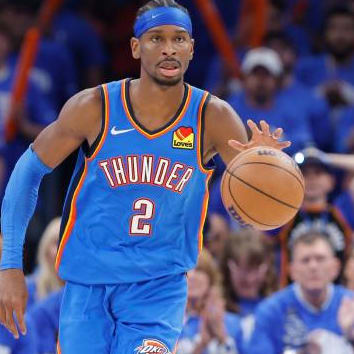2025 Stats
PTS
18.5
REB
3.4
AST
3.6
STL
0.7
BLK
0.3
ROS Projections
2025 Fantasy Outlook
After three-plus years in New Orleans, McCollum was traded to Washington this offseason. His role with the Wizards is odd, as McCollum and Khris Middleton find themselves surrounded by youngsters on a rebuilding team. Both veterans are on expiring contracts and will be trade candidates at the deadline, especially if they are playing well. Going to a contender would likely hurt McCollum's fantasy value, and it's unclear how high his upside will be in his new setting. He's averaged at least 20 points per game and finished as a top-100 asset in category leagues in every season since 2015-16. However, his playing time could take a hit if the Wizards empty their bench for developmental minutes on nights when things get out of hand. Washington will want to see as much as it can from promising youngsters like Bub Carrington, Bilal Coulibaly, Kyshawn George, Alex Sarr, Tre Johnson, Cam Whitmore, Will Riley and AJ Johnson. With that said, McCollum is getting paid $30 million, and he needs to produce if the Wizards hope to get any draft capital in return for a potential deal. As long as he's on the court, which has become an issue recently (at least 16 missed games in four of the last five years), McCollum should flirt with top-100 value. Read Past Outlooks

Leads bench in victory
McCollum totaled 21 points (9-15 FG, 2-4 3Pt, 1-2 FT) and four rebounds across 29 minutes during Friday's 110-103 victory over the Suns.
ANALYSIS
After averaging 14.3 points on 38.5 percent shooting from the field in his previous three outings, McCollum got back on track in this one. The veteran guard led the second unit in scoring and posted at least 20 points for the third time over seven appearances (one start) with the Hawks. During that stretch, he has averaged 17.3 points, 3.4 assists and 2.6 rebounds across 26.6 minutes per tilt.
After averaging 14.3 points on 38.5 percent shooting from the field in his previous three outings, McCollum got back on track in this one. The veteran guard led the second unit in scoring and posted at least 20 points for the third time over seven appearances (one start) with the Hawks. During that stretch, he has averaged 17.3 points, 3.4 assists and 2.6 rebounds across 26.6 minutes per tilt.
NBA Per Game Stats
Per Game
Total
Per 36
NBA Per Game Stats
Loading Per Game Stats...
2025 NBA Game Log
2025
2024
2023
2022
2021
2020
2019
2018
2017
2016
2025 NBA Per Game Split Stats
Schedule
By Month
Starting/Off Bench
Days Rest
Vs Opp
By Result
2025 NBA Per Game Split Stats
Loading Split Stats...
Advanced Stats
Loading Advanced Stats...
Stat Review
2025
2024
2023
2022
2021
2020
2019
2018
2017
2016
How does CJ McCollum compare to other players?
This section compares his stats with all players from the previous three seasons (minimum 200 minutes played)*. The bar represents the player's percentile rank. For example, if the bar is halfway across, then the player falls into the 50th percentile for that stat and it would be considered average.
True Shooting %
57.3%
Effective Field Goal %
54.4%
3-Point Attempt Rate
46.1%
Free Throw Rate
19.3%
Offensive Rebound %
2.2%
Defensive Rebound %
9.9%
Total Rebound %
6.1%
Assist %
18.3%
Steal %
0.9%
Block %
0.7%
Turnover %
7.6%
Usage %
24.4%
Fantasy Points Per Game
29.6
Fantasy Points Per Minute
1.0
NBA Historical Fantasy Stats
Historical ADP
Loading Historical ADP...
Hawks Depth Chart
Our full team depth charts are reserved for RotoWire subscribers.
Subscribe Now
Hawks Rotation: Minutes Breakdown
Loading Hawks Rotation Data...
Average Fantasy Points
Minutes
FanDuel
DraftKings
Yahoo
FantasyDraft
Head2Head
Sorare
Average Fantasy Points are determined when CJ McCollum was active vs. non-active during the season. Click here to view average fantasy points for a different time period.
Loading Average Minutes...
Past Fantasy Outlooks
2024
2023
2022
2021
2020
2019
2018
2017
2016
2015
2014
2013
McCollum posted a decent stat line in the 2023-24 season after averaging 20.0 points, 4.6 assists and 4.3 rebounds across 32.7 minutes per game in 66 regular-season appearances. Even though his scoring figures were the lowest mark of his career since he became a full-time starter in his third year in the league, McCollum salvaged his fantasy year with solid contributions in other categories, as this was the third straight campaign in which he also averaged at least 4.0 rebounds, 4.5 assists and 0.9 steals per contest. The Pelicans' roster decisions before the start of the 2024-25 campaign will impact McCollum's fantasy upside, as his role will change considerably if the team finds a way to trade Brandon Ingram. However, even if Ingram stays, McCollum could be in line for a scoring bump since he's expected to move to shooting guard after the team acquired Dejounte Murray in the offseason. With less responsibility to orchestrate the offense and an increase in playing off the ball, McCollum's numbers could move closer to what he used to deliver during his Portland days alongside Damian Lillard. Even if he holds a secondary role in the offensive scheme, McCollum should get enough touches to remain a valuable mid-round target across all formats.
More Fantasy News

Back to bench
McCollum will come off the bench Monday against the Bucks, Brad Rowland of the Locked On Podcast Network reports.
ANALYSIS
Subscribe now to instantly reveal our take on this news.
Subscribe now to instantly reveal our take on this news.

Starting Saturday
McCollum is in the starting lineup for Saturday's game versus the Celtics, Sean Grande of NBC Sports Boston reports.
ANALYSIS
Subscribe now to instantly reveal our take on this news.
Subscribe now to instantly reveal our take on this news.

Surges with 25 points from bench
McCollum racked up 25 points (11-23 FG, 2-8 3Pt, 1-3 FT), one rebound, three assists and one steal across 27 minutes during Tuesday's 141-116 loss to the Lakers.
ANALYSIS
Subscribe now to instantly reveal our take on this news.
Subscribe now to instantly reveal our take on this news.

Modest production in team debut
McCollum amassed 12 points (5-14 FG, 0-4 3Pt, 2-4 FT), four assists and one steal in 24 minutes off the bench during Sunday's 124-111 victory over the Warriors.
ANALYSIS
Subscribe now to instantly reveal our take on this news.
Subscribe now to instantly reveal our take on this news.

Off injury report for Sunday
McCollum (not with team) isn't listed on the injury report for Sunday's game against the Warriors.
ANALYSIS
Subscribe now to instantly reveal our take on this news.
Subscribe now to instantly reveal our take on this news.
Latest Fantasy Rumors

Candidate for extension?
The Hawks could be interested in signing McCollum to an extension, according to John Hollinger of The Athletic.
ANALYSIS
Even though the Hawks' general manager, Onsi Saleh, declined to confirm whether the franchise will aim to sign the veteran guard to an extension, he did refer to McCollum as "somebody that I think could fit here long term." McCollum is playing on an expiring contract, but the Hawks could have some interest in working out a new deal with the 34-year-old scorer.
Even though the Hawks' general manager, Onsi Saleh, declined to confirm whether the franchise will aim to sign the veteran guard to an extension, he did refer to McCollum as "somebody that I think could fit here long term." McCollum is playing on an expiring contract, but the Hawks could have some interest in working out a new deal with the 34-year-old scorer.
















